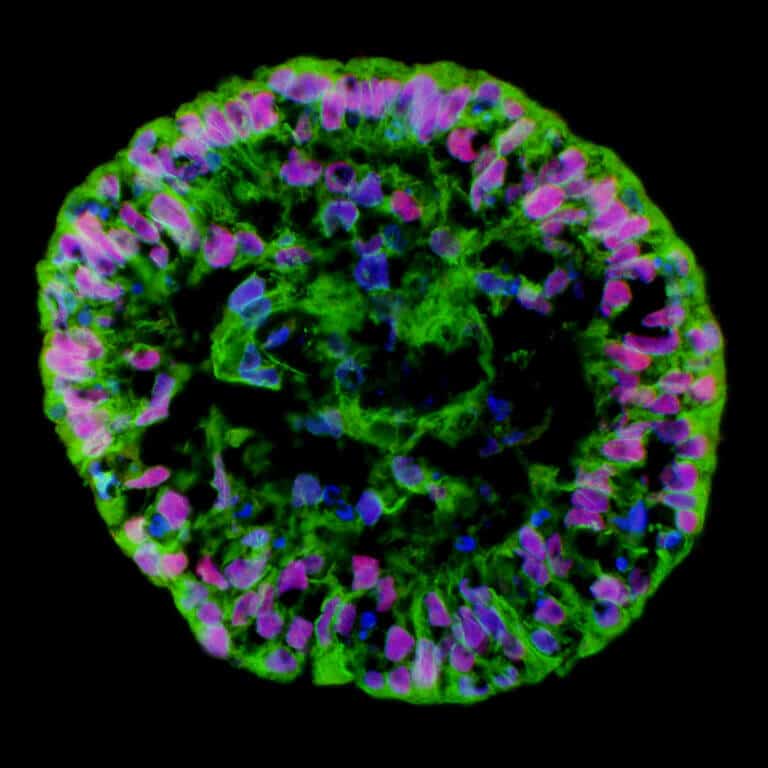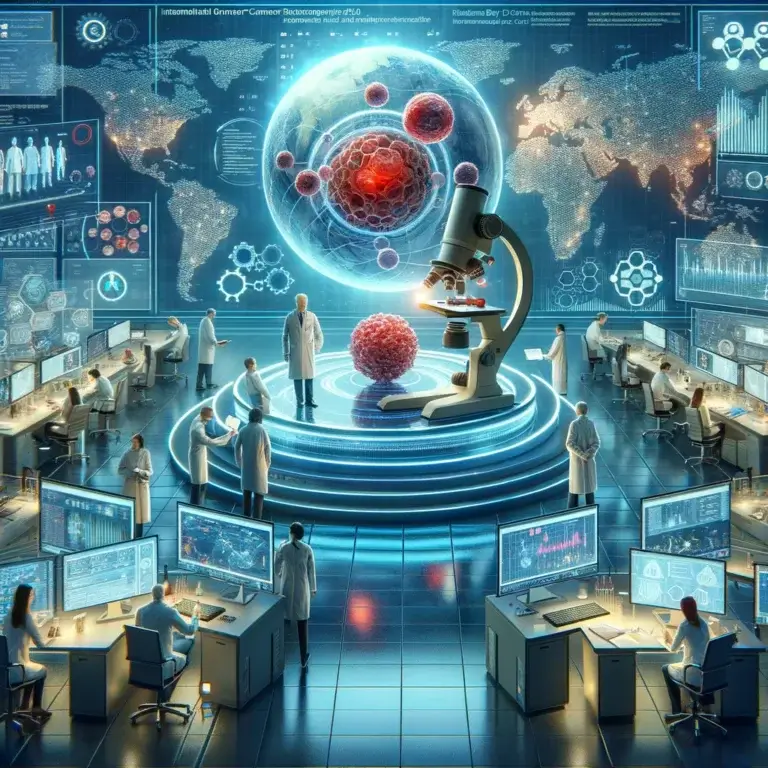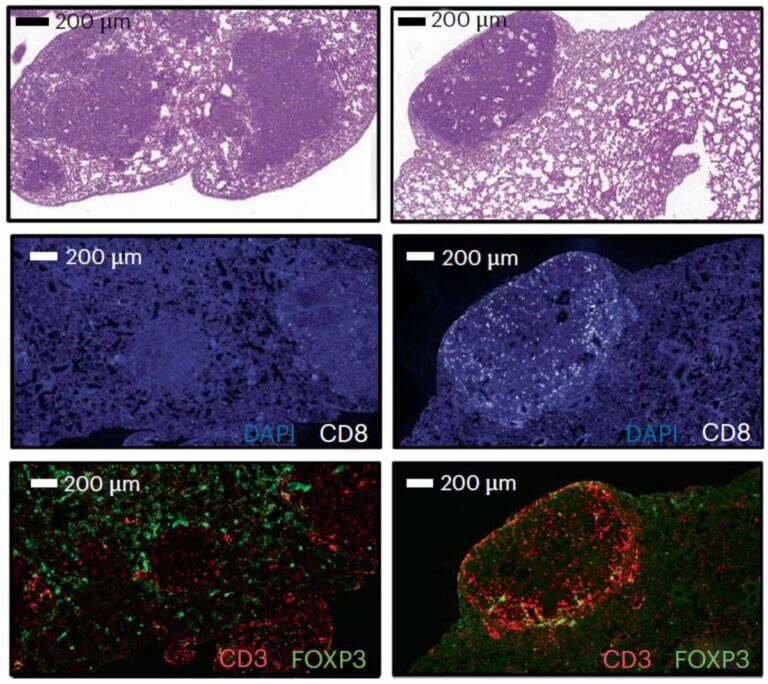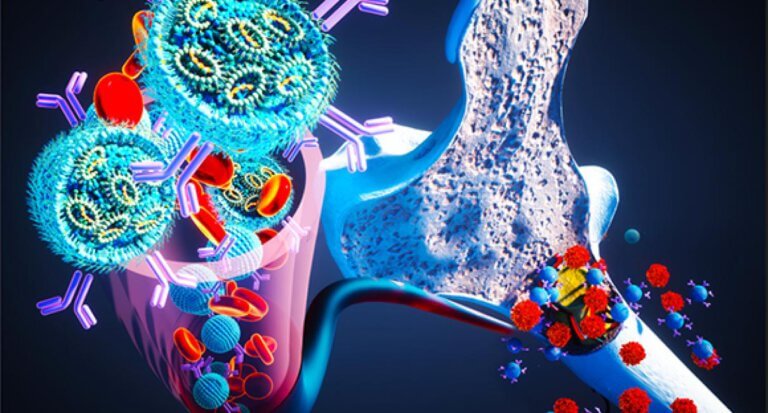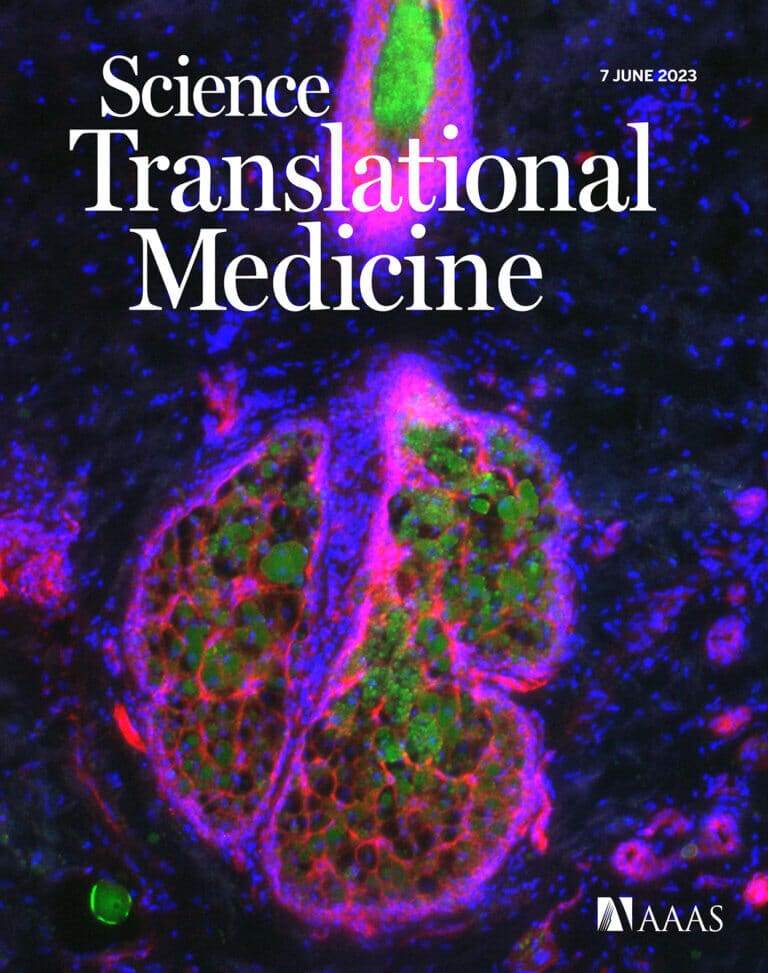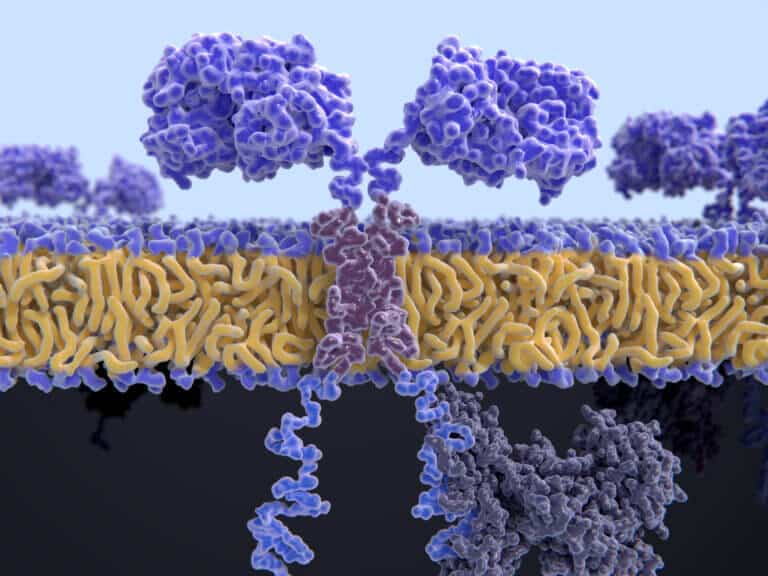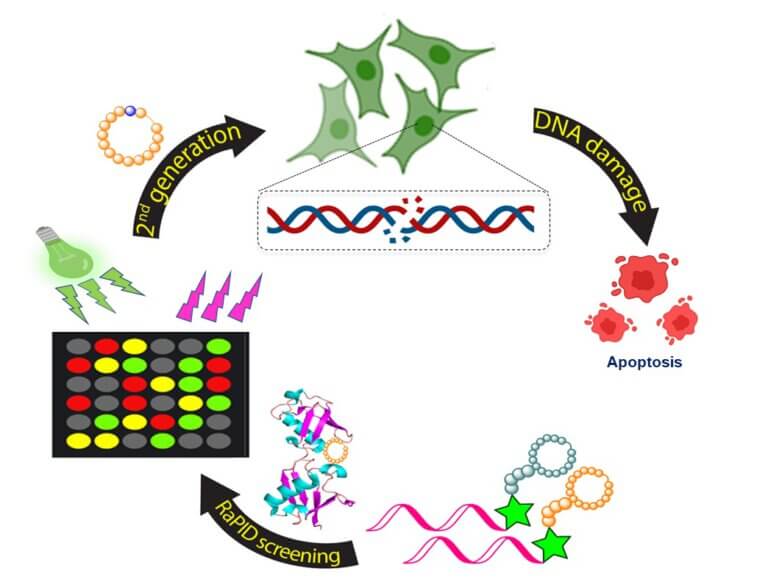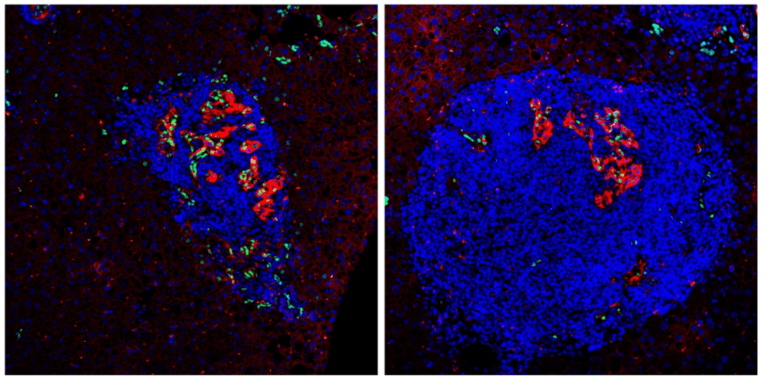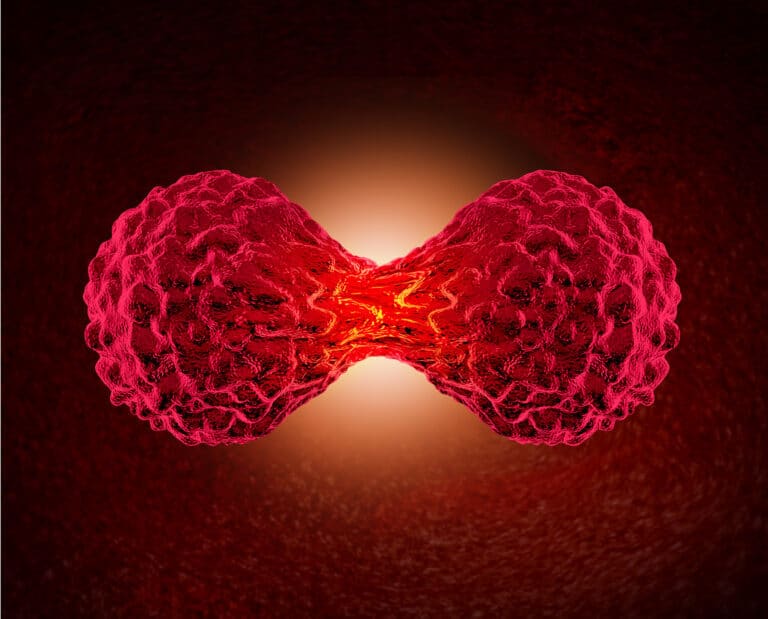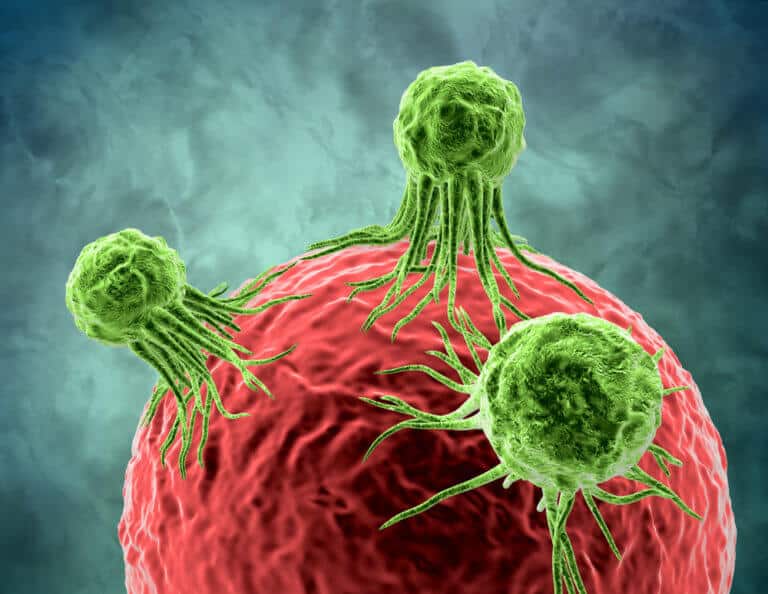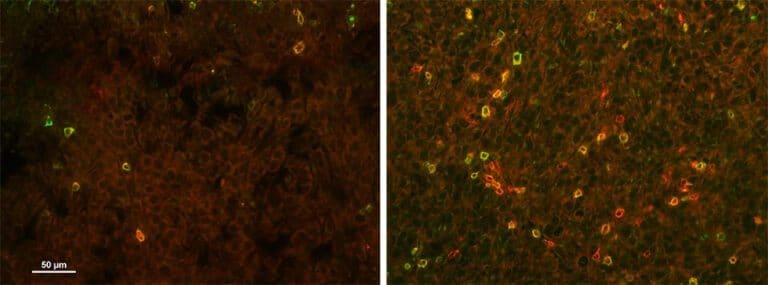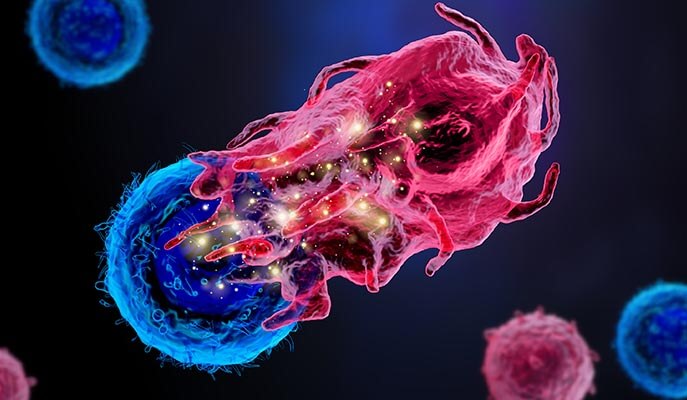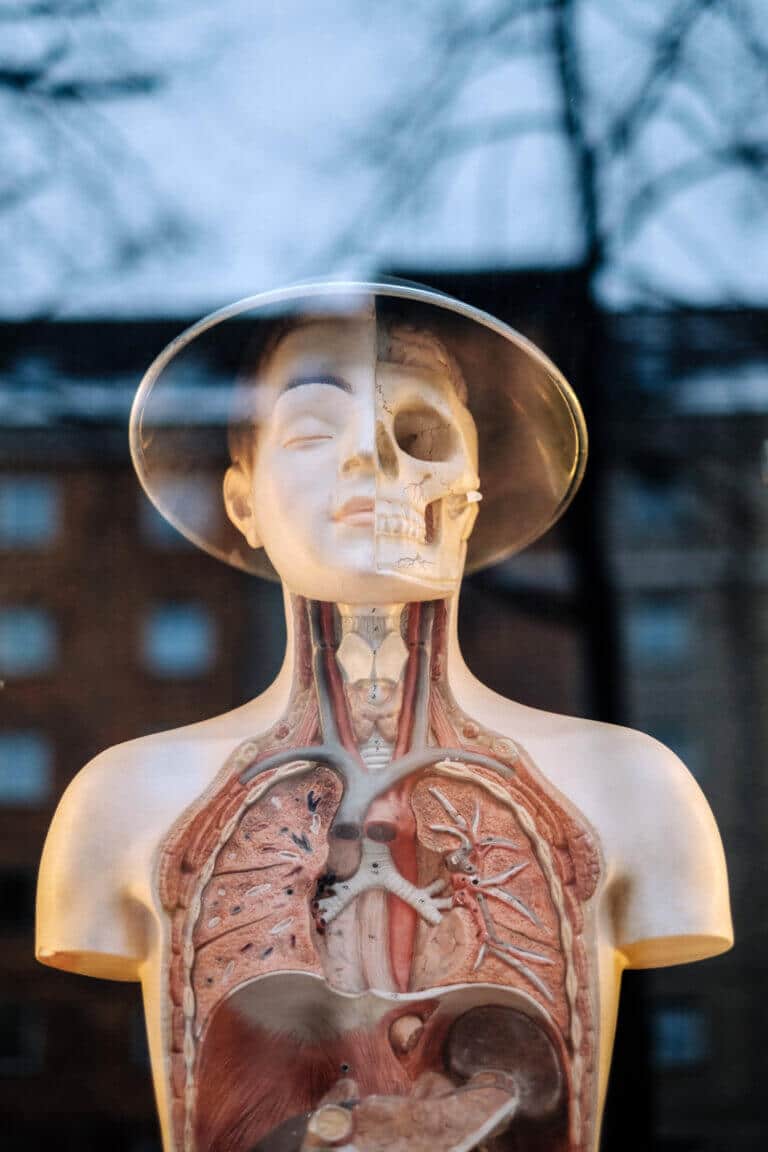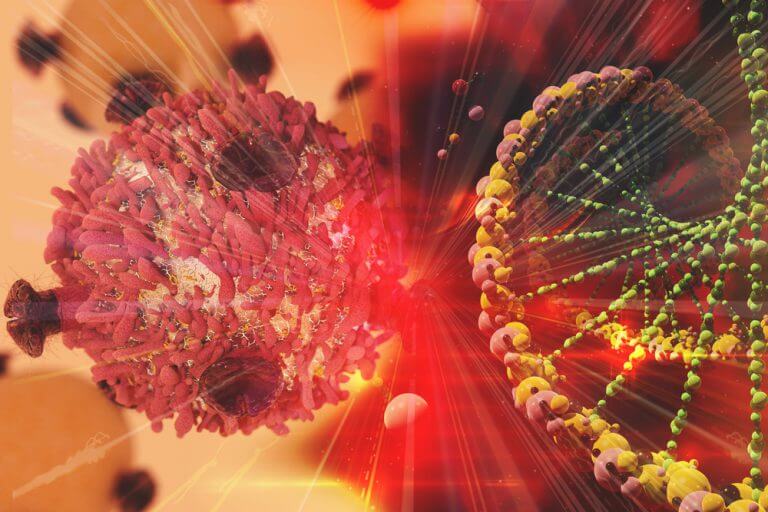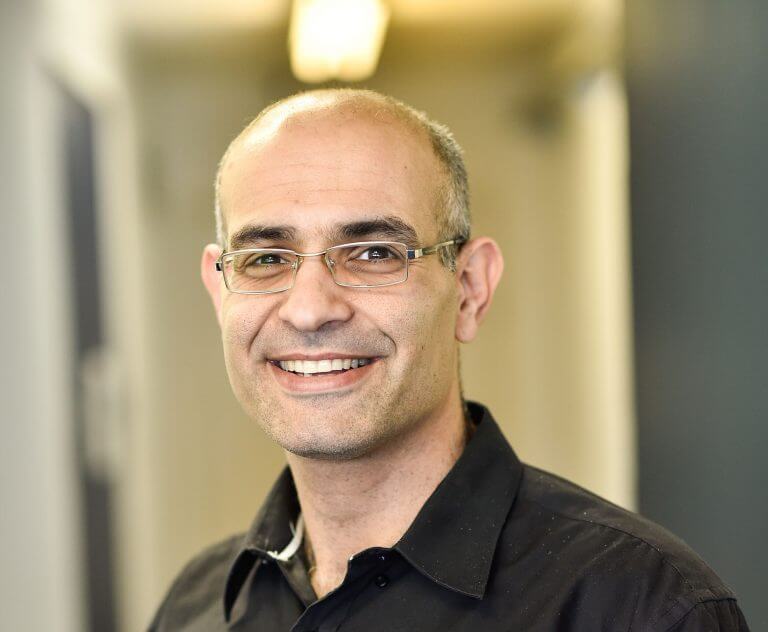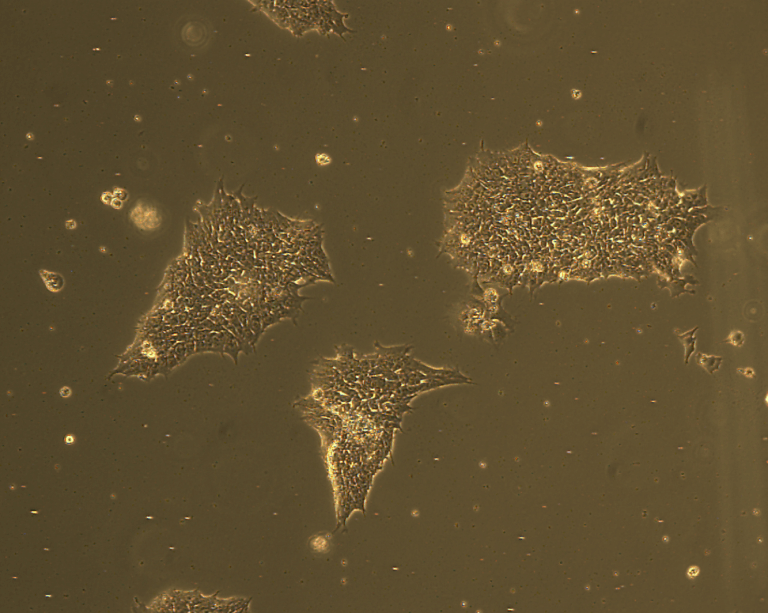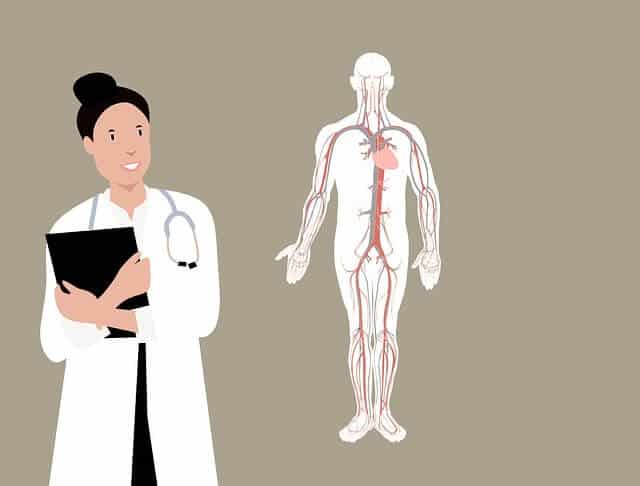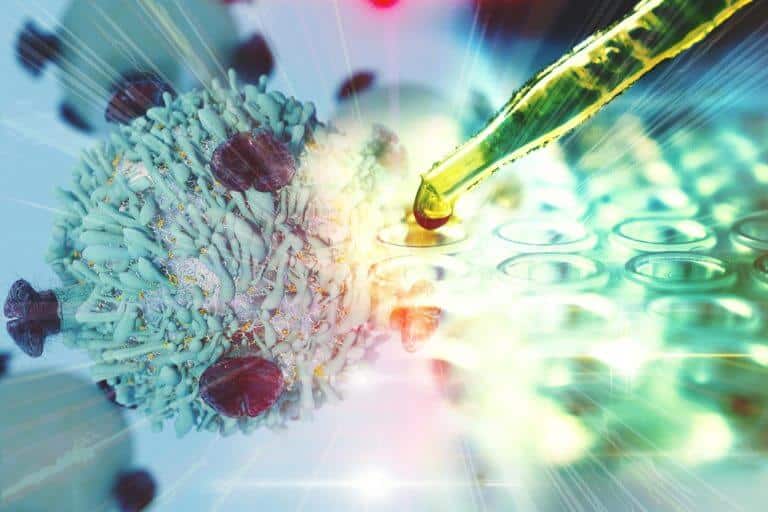Hayadan > cancer
cancer
- The Voice of Science website - the Israel National Science Foundation
- March 14, 2024
Researchers discovered which genes are required for each stage of cell differentiation into neural stem cells and neurons, i.e. for brain development, and which of them are involved in diseases of the nervous system
- The Technion
- March 13, 2024
- No comments
Dr. Kathryn Vandorna from the Faculty of Biomedical Engineering at the Technion developed a new method that allows the monitoring of the formation of immune blood cells in the bone marrow. For this purpose, she used tiny magnetic particles of iron oxide, which she followed with various imaging methods, including MRI of the living creature
- The Technion
- February 5, 2024
- No comments
The technology developed by Prof. Yuval Shaked's research group was registered as a patent and is now in the process of being commercialized
- Weizmann Institute
- September 24, 2023
The cell's garbage disposal system changes in cancer and allows it to escape the immune system
- The Technion
- September 4, 2023
- One response
- Tel Aviv University
- August 4, 2023
Thanks to the nanoparticle system they developed - the cancer cell stops dividing and dies
- Tel Aviv University
- July 9, 2023
This is the first time that researchers succeed in developing personalized tools for infectious diseases, which until now have only been developed for specific diseases such as cancer and Alzheimer's
- The Hebrew University
- June 15, 2023
- One response
Researchers at the Hebrew University and the Hadassah Medical Center have developed an ointment to treat the severe side effects of targeted cancer treatment and significantly improve the quality of life of patients.
- Weizmann Institute
- May 9, 2023
The institute's scientists reveal how cancer leads to fatal emaciation and point the way to treatment
- Bar-Ilan University
- January 9, 2023
In the clinical trial, T Cell-CAR genetic engineering technology was used to program the patient's white blood cells to attack the cancerous blood tumors
- The Technion
- November 8, 2022
- No comments
The research was led by researchers from two faculties at the Technion and their colleague from the University of Tokyo
- The Voice of Science website - the Israel National Science Foundation
- April 12, 2022
Pools of immune system cells taken from patients and mice with liver cancer and melanoma, partly composed of tired immune cells
- Avi Blizovsky
- September 2, 2021
- No comments
Researchers from Tel Aviv University have shown that silent mutations, i.e. those that do not change the amino acid sequence of the proteins, are also not innocent
- Avi Blizovsky
- January 15, 2021
- No comments
A marker developed in a new Israeli study by the University of Bar-in and applied by the start-up company Isotopia will not only determine if it is a malignant or benign tumor but also determine how aggressive it is, and all this will be done in one image and avoid a biopsy
- Weizmann Institute
- November 2, 2020
A group of scientists at the Weizmann Institute of Science recently investigated what happens to cellular memory in cancer. Their findings illustrate how "memory loss" may affect the course of malignant diseases
- The science service
- October 9, 2020
- Weizmann Institute
- October 4, 2020
Weizmann Institute of Science scientists, in collaboration with researchers from the National Cancer Institute and Ben-Gurion University of the Negev, recently found a genetic signature that differentiates between tumors that may respond to immunotherapy and tumors that are resistant to this treatment method. Besides better diagnostic tools for predicting the response of patients to immunotherapy
- Weizmann Institute
- August 15, 2020
- 3 תגובות
- Weizmann Institute
- July 20, 2020
- 2 תגובות
- Avi Blizovsky
- June 3, 2020
- 2 תגובות
- Science site The Conversation
- February 9, 2020
- 6 תגובות
- The Technion
- February 4, 2020
- 4 תגובות
- The Hebrew University
- October 7, 2019
- One response
- Dr. Moshe Nahamani
- October 2, 2019
- No comments
- Dr. Moshe Nahamani
- January 2, 2019
- 2 תגובות

